Doug Kauffman, partner in the firm’s Birmingham office and member of the Labor and Employment Practice, interviewed with Law360 about how employers can ensure their hiring policies regarding non-U.S. citizen applicants are valid.
In the article published September 26, 2023, Doug emphasized that employers need to know the laws to ensure best practices are being followed.
An employer may mistakenly believe their business is exempt from certain regulations under a narrow exception to the Immigration and Nationality Act (INA). This caveat allows employers to only hire U.S. citizens if a law, regulation, executive order or federal contract requires it, but these occurrences are rare.
"In that respect, employers can't take citizenship and the type of work authorization someone has into account," Law360 quoted Doug as saying. "One mistake employers might make is if they think that they're able to discriminate on that basis because [of] the nature of their business, that they don't make sure through legal counsel that there actually is a law regulation or executive order, or federal contract that actually says they can't."
Doug went on to explain that another component of the INA that can cause issues for employers is “unfair documentary practices,” which involves employers favoring certain documentation over others.
"For example, just because somebody may appear to not be a U.S. citizen, or appear to be from another national origin [than] the United States, you can't request more than is necessary to complete the online form," he was quoted as saying. "You have to give them a copy of the list of acceptable documents, and they get to choose what to present."
Employers should also avoid scrutinizing documents provided by applicants, based on questions stemming from their appearance, Doug emphasized.
"So no additional scrutiny over those documents that are presented based on citizen status or national origin,” Doug was quoted as saying.
Doug concluded that it is critical for employers to have someone who is familiar with the legal requirements reviewing these forms and documentation, saying "The high-level [best practices] are having the right person who's trained to complete the I-9, and then make sure you understand and follow all the rules, especially with the I-9 and E-Verify processes."
Doug helps employers manage their most valuable assets —their employees. For more than 20 years, he has counseled large and small employers, helping them stay up to date on the law, regulations, and best practices with respect to employment compliance. When issues arise in the workplace, Doug provides real-time solutions. He also handles complaints or audits by various government agencies, such as the EEOC, the Department of Labor, and the Immigration and Customs Enforcement, and he litigates all employment issues in court. Well respected on both sides of the table, Doug is frequently invited to speak at seminars sponsored by government agencies.


